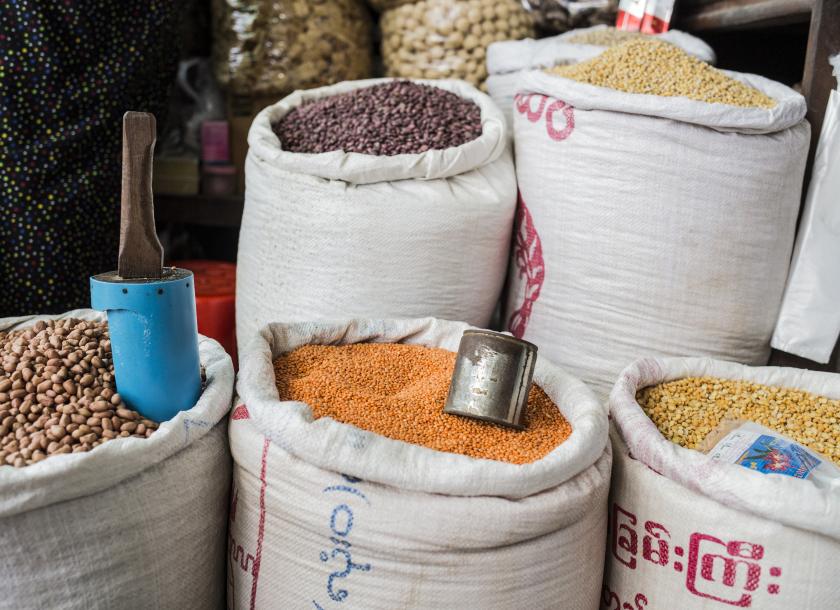Myanmar: Local, foreign demand for beans and pulses rises after India stops imports
Bangladesh, Sri Lanka, Pakistan and Nepal have replaced India as the main importers of Myanmar’s beans and pulses, U Min Ko Oo, Secretary of Myanmar Pulses, Beans & Sesame Seeds Merchants Association, said.
After the Indian Foreign Trade Department said in August that it was restricting the import volume quota of black matpe, mung beans and pigeon peas from Myanmar in the 2017-18 fiscal year, demand from Bangladesh, Sri Lanka, Pakistan and Nepal has doubled.
The order from India, which was issued to protect India’s bean and pulse farmers during a bumper year for the domestic sector, had caused prices for Myanmar’s beans and pulses to drop substantially. Prior to the order, India had been Myanmar’s largest importer.
However, at the current lower level, the price of locally-produced crops has attracted buyers from other countries. It is demand from other markets that has saved the Myanmar bean and pulse market from collapse, merchants said.
Up until August, Myanmar exported up to 60,000 tonnes of black matpe and pigeon peas. More than 60 percent of those volumes were exported to India, while the remaining crops were absorbed by Bangladesh, Sri Lanka, Pakistan and Nepal.
Now, Myanmar is exporting around 30,000 tonnes of black matpe and pigeon peas to Bangladesh, Sri Lanka, Pakistan and Nepal on a monthly basis.
After India halted bean and pulse imports from Myanmar, the market price has also tumbled. The price per tonne of pigeon peas has since fallen to K470,000 from K700,000, while the price per tonne of mung beans has fallen K320,000 from K630,000 between August and November.
Local demand
The lower prices in the export market have also affected prices in the domestic bean market, which supplies beans and pulses consumed by the locals. As prices of beans sold in the local market have come down, demand from local buyers has risen, according to merchants in the Mandalay bean market.
Demand is also rising due to lower production levels domestically, the merchants said.
In fact, while the price of pigeon peas, mung beans and green gram has declined, the price of beans mainly consumed in Myanmar such as lentils, green peas and haricot beans has actually reached a record-high price this month, rising two-times since last year, traders were quoted by government media as saying.
Currently, green peas cost around K160,000 per bag, while lentils are priced K95,000 per bag. Meanwhile, haricot beans are selling for K100,000 per bag.
In 2016, green peas were K120,000 per bag, lentils were K60,000 per bag and haricot beans were K50,000 per bag.
Source: https://www.mmtimes.com/news/local-foreign-demand-beans-and-pulses-rises-after-india-stops-imports.html


 English
English




